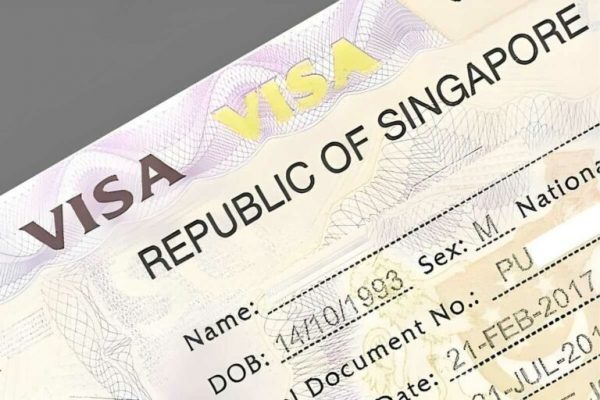Applying for a job abroad is exciting, but it can also feel overwhelming. Different countries have different hiring processes, cultural expectations, and document standards. That’s why a generic application simply won’t cut it.
In this guide, you’ll learn how to craft a tailored, professional, and competitive job application that speaks to international recruiters step by step. Whether you’re eyeing roles in Canada, Germany, Australia, the UK, or anywhere else, this comprehensive guide will help you stand out and boost your chances of landing that overseas job.
Research the Country’s Job Market and Requirements
Before you even write your resume, take time to understand the target country’s expectations.

What to focus on:
- Visa & Work Permit Requirements
Know if you need sponsorship or if there are visa pathways for foreign workers (e.g., Canada’s Express Entry, Germany’s Blue Card). - In-Demand Job Sectors
Identify which industries are hiring international talent. For example:-
- Canada: Healthcare, IT, skilled trades
- Germany: Engineering, nursing, tech
- Australia: Construction, education, healthcare
-
- Cultural Expectations
Employers in Japan may value humility and formality, while U.S. employers might appreciate directness and initiative. - Application Format
For instance:-
- In Germany, attach credentials and a professional photo.
- In the U.S. or UK, avoid photos to reduce bias.
-
Helpful Resources:
- LinkedIn Jobs
- Indeed International
- Work Abroad (for Filipinos)
- Government job portals like:
Adapt Your Resume to International Standards
One resume does not fit all. Customization is key.
Tips for a country-ready resume:
- Length: Keep it to 1 or 2 pages unless the job requires detailed experience.
- Language: Use the language of the job post (usually English, unless otherwise stated).
- Structure:
-
- Header: Name, professional title, contact info (email, phone with country code, LinkedIn).
- Summary/Profile: 3 or 4 lines highlighting key achievements and goals.
- Experience: Use action verbs and quantify results where possible.
- Education & Certifications: Clarify equivalents if your degree has a different title abroad.
- Skills: Focus on job-relevant and transferable skills.
- Languages & Tech Tools: Especially important for tech or customer-facing roles.
-
- Avoid:
-
- Listing age, marital status, or nationality (unless required)
- Adding photos (unless it’s expected check country norms)
-
- Tools to Help:
Read: The Power of Informational Interviews: 7 Questions to Ask Industry Experts
Craft a Targeted International Cover Letter
Your cover letter should be personalized and demonstrate a genuine interest in both the company and country.

- Structure:
-
- Greeting: Address the hiring manager by name if possible.
- Introduction: Mention the role and where you found it.
- Value Statement: Briefly explain why you’re a strong candidate backed by results or experience.
- Cultural Fit: Show enthusiasm for the company and why you want to work in that country.
- Closing: Politely ask for an interview and thank them for their time.
-
- Pro Tip:
-
- Avoid clichés like “I’m a hardworking individual.” Instead, say something like:
- “With five years of IT project management experience and a strong record of delivering results across multicultural teams, I’m eager to bring my expertise to Germany’s growing tech ecosystem.”
-
Highlight Globally Relevant and Transferable Skills
When applying across borders, show how your skills align with international work environments.
- Top skills to highlight:
-
- Communication (verbal and written)
- Multilingual ability
- Digital literacy
- Cultural adaptability
- Remote collaboration
- Conflict resolution
- Time-zone flexibility (especially for remote roles)
-
- How to demonstrate them:
-
- “Led a remote team of 7 across 3 continents to deliver a project 2 weeks early.”
- “Fluent in English and French; used both languages in customer service roles.”
-
Read: 15 Smart Questions to Ask at the End of Every Job Interview to Impress Employers
Clearly Display Language Proficiency
Language is often a deal-breaker in global hiring.
- Best Practices:
-
- Use CEFR scale: A1 (Beginner) to C2 (Fluent)
- Example: English C1 Advanced; German B1 Intermediate
- Mention Tests: IELTS, TOEFL, Duolingo English Test (include scores and year)
- Position Smartly: Create a dedicated “Languages” section in your resume
-
- Bonus Tip:
-
- If you’re not yet fluent in the local language, mention your willingness to learn. Employers value effort and commitment.
-
Follow the Specific Application Instructions
Every employer has their own set of expectations.
- Checklist:
-
- Does the employer ask for a cover letter?
- Should documents be in PDF or DOCX?
- Is there a specific subject line format?
- Do they request credentials or references upfront?
- Is a local address or phone number required?
-
- Important: Never skip or ignore instructions doing so signals carelessness.
Polish Your Online Presence
Your digital reputation matters especially across borders.

To-do list:
- LinkedIn:
-
- Use a professional photo
- Add a compelling headline (e.g., “Experienced Financial Analyst Seeking Global Opportunities”)
- List roles with descriptions and accomplishments
-
- Portfolio:
-
- Showcase work samples (designs, writing, code, campaigns)
-
Other Platforms:
-
-
- Clean up public profiles (Instagram, Twitter)
-
Make sure your name is searchable and professional
Apply Through Trusted and Reputable Job Platforms
Avoid wasting time on shady websites or scammy listings.
- Top global job platforms:
-
- LinkedIn Jobs
- GoAbroad
- Relocate.me for tech professionals
- We Work Remotely, remote international jobs
- Glassdoor
- Monster Worldwide
-
Read: Ace the Virtual Interview: Tips for Nailing Your Next Zoom Interview
Stay Alert to Scams and Fraudulent Job Offers
Scammers prey on international job seekers. Be cautious.
- Red flags:
-
- Asking for money for job placement or visa processing
- No official company email (e.g., using Gmail or Yahoo)
- Vague job descriptions or rushed offers
- Poor grammar or pressure tactics
- No online presence or unverifiable contact info
-
- Protect Yourself:
-
- Research the company website and reviews
- Contact them via LinkedIn or official phone numbers
- Verify job listings with the company’s careers page
-
Prepare for International Interviews and Assessments
Getting to the interview stage? That’s a win now it’s time to nail it.
- Interview formats to expect:
-
- Phone/Video Calls: Be aware of time zones
- Pre-recorded Interviews: Practice beforehand
- Technical Assessments or Tasks: Common in IT and creative roles
-
- Tips to excel:
-
- Research cultural norms (e.g., small talk is common in the US, not in Japan)
- Prepare STAR-based answers (Situation, Task, Action, Result)
- Ask questions about relocation, team structure, or training
- Dress professionally even for virtual interviews
-
A successful job application abroad takes more than just sending a resume. It’s about understanding cultural expectations, adapting your documents, using the right platforms, and showing employers that you’re not only qualified but ready to integrate into a new work environment.
Stay organized, be authentic, and tailor every part of your application. With the right approach, you can land that overseas job and start an exciting new chapter in your career.


